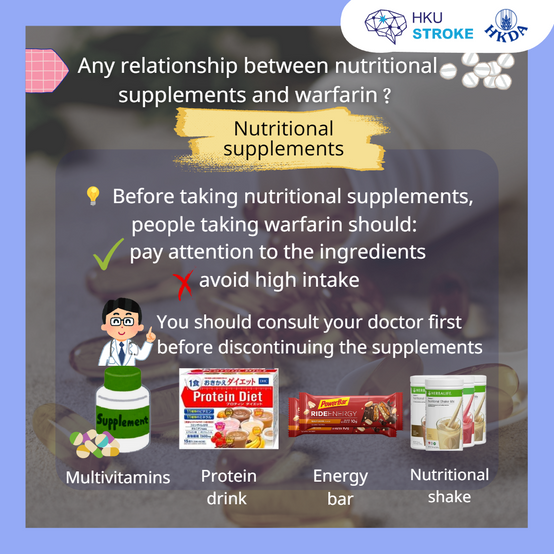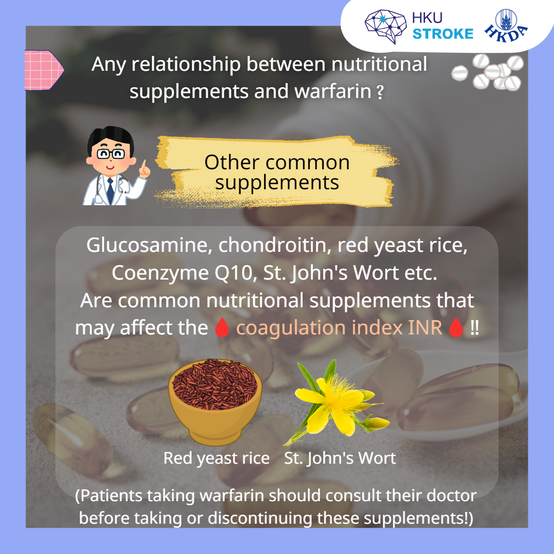Warfarin & Nutritional Supplements and Chinese Herbal Medications
- tuet tuet
- 2023年6月25日
- 讀畢需時 1 分鐘
Excessive consumption of vitamin K will reduce the efficacy of warfarin. Those who take warfarin should pay special attention to the amount of vitamin K-rich foods they consume. Let's review the factors that warfarin users should consider when selecting nutritional supplements and Chinese herbal medications!
🥤What is the relationship between nutritional supplements and warfarin?
To make dietary supplements more complete, food manufacturers add vitamin K into the production process. Comprehensive vitamin supplements, protein meal replacements, energy bars, meal replacements for weight loss, nutritional formula milk, etc., are examples of nutritional supplements. Before taking such nutritional supplements, those taking warfarin should pay attention to the ingredients, avoid those with a high vitamin K content, and avoid sudden and high intake. If you wish to discontinue use, you should first consult your doctor.
🥤Common nutritional supplements
Common supplements such as glucosamine, chondroitin, red yeast rice, coenzyme Q10, St. John's wort, etc. have the potential to affect the coagulation index INR, thereby affecting the efficacy of warfarin.
☕️The relationship between Chinese herbal medicine and warfarin?
Chinese herbal medicine such as ginseng, salvia, angelica, turmeric, etc. have been proven to affect the coagulation index INR or the efficacy of blood thinning medicine. Those who take warfarin should pay attention to the intake of Chinese herbal medicines.
📣Precaution
Long-term warfarin users should consult a doctor or nutritionist prior to taking any Chinese medicine treatment, nutritional supplements, Chinese herbal medicines, in order to avoid compromising the efficacy of warfarin due to excessive intake.
💡Learn more about the warfarin diet👇

















Comments